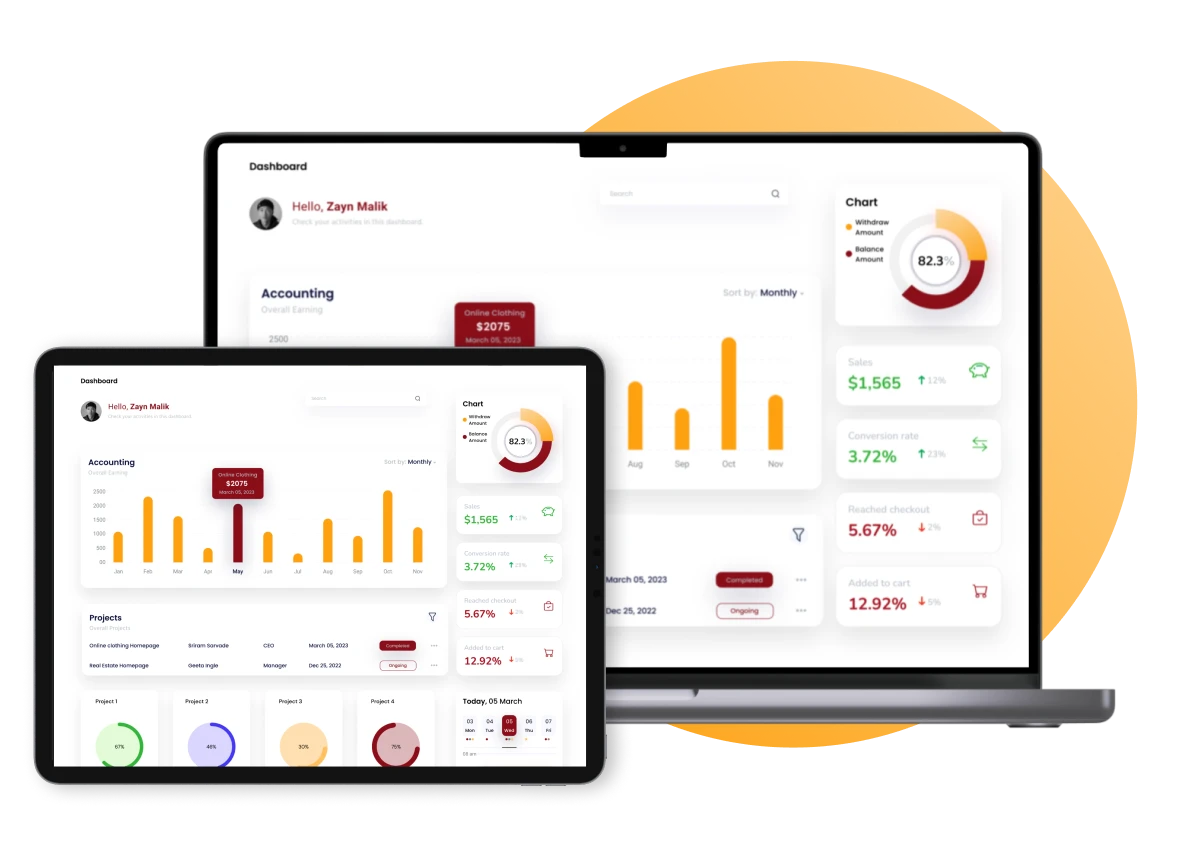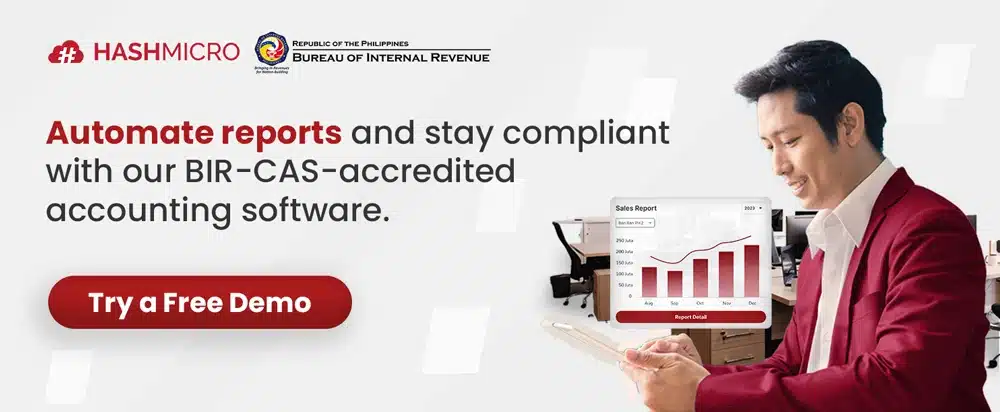Imagine losing global opportunities just because your financial reports don’t align with international standards—a risk no business can afford. For Filipino business owners, following International Financial Reporting Standards (IFRS) isn’t just compliance; it’s about positioning your company for success, attracting foreign investors, and staying competitive in global markets. Implementing IFRS could be the game-changer your business needs to thrive internationally.
Curious about how this can enhance your financial reporting? Our guide offers clear insights into what IFRS is, why it matters, and how your business can easily adopt these standards. Don’t let outdated practices limit your growth—see how this can open doors to bigger opportunities and secure your spot in the global market.
Key Takeaways
|
Table of Contents

What are International Financial Reporting Standards?
IFRS (International Financial Reporting Standards) are global accounting standards set by the IASB to ensure consistency and transparency in financial reporting. They are used by publicly accountable entities (e.g., listed companies, banks, and insurers) to ensure the credibility of financial statements.
For Filipino businesses, especially those involved in cross-border transactions or seeking foreign investment, following PFRS is crucial. Since PFRS is based on IFRS, businesses can produce reports that meet global standards, making it easier to build trust.
This alignment helps businesses integrate seamlessly into the global market by offering consistent financial information that meets international expectations. Proper adherence to these standards not only improves credibility but also increases access to international growth opportunities.
History of IFRS
The International Financial Reporting Standards have undergone significant evolution over the decades, shaping the global landscape of financial reporting. Understanding its historical journey and how it was adopted in the Philippines through the Philippine Financial Reporting Standards highlights the importance of standardized accounting practices.
Key Milestones:
- 1973: The International Accounting Standards Committee (IASC) was formed to establish global accounting principles.
- 2000: IOSCO endorsed IFRS for cross-border securities offerings, boosting global acceptance.
- 2001: The International Accounting Standards Board (IASB) replaced the IASC, taking over the development and refinement of IFRS.
- 2002: The European Union mandated IFRS for all publicly listed companies by 2005, solidifying IFRS as the global standard.
- 2005: The Philippines adopted IFRS under PFRS, aligning closely with global practices while ensuring local relevance.
- Present: PFRS, governed by the Philippine SEC, remains the mandatory framework for publicly accountable entities, promoting transparency and global alignment.
The historical development of IFRS and its adoption through PFRS in the Philippines demonstrate a commitment to global financial integrity. For Filipino businesses, complying with PFRS ensures credibility and competitiveness in both local and international markets.
List of Key IFRS Standards
The International IFRS has been adopted in the Philippines as PFRS. Several IFRS standards are particularly relevant and have been integrated into PFRS for businesses in the Philippines. Among the key standards are:
- PFRS 9: Financial Instruments – Governs the classification, measurement, and recognition of financial assets and liabilities.
- PFRS 15: Revenue from Contracts with Customers – Provides guidelines on how and when to recognize revenue from customer contracts.
- PFRS 16: Leases – Addresses the recognition, measurement, and presentation of lease contracts.
- IAS 16: Property, Plant, and Equipment – Covers the accounting for tangible fixed assets, including acquisition, depreciation, and disposal.
- IAS 36: Impairment of Assets – Focuses on procedures for assessing and recognizing asset impairment when their value falls below recoverable amounts.
These standards ensure financial statements are consistent, transparent, and meet global expectations. For Filipino businesses, PFRS compliance satisfies local regulations and aligns with international investor requirements. This alignment enhances credibility and enables smoother cross-border transactions.
Standard IFRS Requirements
The IFRS standards cover a wide range of financial reporting requirements, but here are some of the key standard IFRS requirements that companies must follow:
1. Financial Statements
Presentation of Financial Statements (IAS 1): Companies must prepare a set of basic financial statements, which typically include:
- Statement of Financial Position (Balance Sheet): Shows assets, liabilities, and equity at a specific point in time.
- Statement of Profit or Loss (Income Statement): Reports revenues, expenses, and profits or losses over a period.
- Statement of Cash Flows: Shows inflows and outflows of cash during a period.
- Statement of Changes in Equity: Reflects changes in shareholders’ equity during a period.
- Notes to the Financial Statements: Provide additional details on the financial statements.
2. Revenue Recognition
IFRS 15: Revenue from Contracts with Customers outlines how and when to recognize revenue. It emphasizes the transfer of control of goods or services to customers as the trigger for revenue recognition.
3. Leases
IFRS 16: Leases requires lessees to recognize almost all leases on the balance sheet by recording a right-of-use asset and a lease liability. This was a shift from previous standards that allowed off-balance-sheet treatment for operating leases.
4. Financial Instruments
IFRS 9: Financial Instruments provides guidelines for classification, measurement, impairment, and hedge accounting. It requires entities to measure financial instruments based on their classification (e.g., financial assets at amortized cost, fair value, etc.) and introduces a forward-looking expected credit loss model for impairment.
5. Consolidation
IFRS 10: Consolidated Financial Statements requires companies to consolidate subsidiaries when they have control over the entity, ensuring that the parent company and its subsidiaries are reported as a single economic entity.
6. Fair Value Measurement
IFRS 13: Fair Value Measurement provides a definition of fair value and outlines a framework for measuring and disclosing fair value. It emphasizes the use of market-based measurements and provides guidelines for the valuation of financial and non-financial assets.
7. Impairment of Assets
IAS 36: Impairment of Assets requires companies to test assets for impairment when indicators suggest that the carrying value may exceed the recoverable value, necessitating a write-down of the recoverable amount.
8. Employee Benefits
IAS 19: Employee Benefits requires companies to recognize and measure obligations related to employee benefits, including pensions, post-employment benefits, and termination benefits.
9. Income Taxes
IAS 12: Income Taxes establishes the accounting for income tax and the recognition of deferred tax assets and liabilities, ensuring that taxes are properly accounted for based on the timing of temporary differences.
10. Provisions, Contingent Liabilities, and Contingent Assets
IAS 37: Provisions, Contingent Liabilities, and Contingent Assets defines how to account for provisions (e.g., legal obligations), contingent liabilities, and contingent assets based on probability and reliable measurement.
11. Disclosure Requirements
- IFRS 7: Financial Instruments: Disclosures require disclosures related to the risks associated with financial instruments, including credit risk, liquidity risk, and market risk.
- IFRS 8: Operating Segments requires companies to disclose financial information by operating segments to enhance transparency and better inform users of financial statements.
12. First-Time Adoption
IFRS 1: First-time Adoption of International Financial Reporting Standards outlines the procedures companies must follow when transitioning from national accounting standards to IFRS for the first time.
IFRS vs. GAAP: What’s the Difference?
One of the key questions that often arises is how IFRS compares to Generally Accepted Accounting Principles (GAAP), particularly for businesses transitioning from one standard to the other. While both aim to provide accurate financial information, the primary difference lies in their approach. IFRS is principles-based, offering more flexibility in interpretation, while GAAP is rules-based, with more specific guidelines and fewer areas open to judgment.
For Filipino businesses, understanding these differences is crucial, especially if they are expanding operations internationally or working with foreign partners. IFRS’s principles-based approach allows for more adaptability and insights into their accounting principle. This can be advantageous in the business environment of the Philippines.
What is Philippine Financial Reporting Standards?
Philippine Financial Reporting Standards (PFRS) are the official accounting principles used in the Philippines. Issued by the Financial Reporting Standards Council (FRSC) and aligned with International Financial Reporting Standards (IFRS), PFRS ensures transparency, consistency, and reliability in financial reporting.
PFRS applies to businesses, government entities, and organizations, helping them maintain compliance with financial regulations. It covers key areas such as financial statement presentation, revenue recognition, lease accounting, and financial instruments. By following PFRS, companies provide accurate, standardized reports that aid in decision-making.
Adopting PFRS benefits businesses by improving financial transparency and reducing risks. It enhances credibility, attracts investors, and facilitates cross-border transactions. Compliance with PFRS is mandated by regulatory bodies such as the Securities and Exchange Commission (SEC) and the Bangko Sentral ng Pilipinas (BSP) for banks and financial institutions.
The Difference Between IFRS and PFRS
While IFRS serves as a global framework for financial reporting, Philippine Financial Reporting Standards (PFRS) have been adapted to align with local requirements. These adjustments, referred to as “transition relief,” ensure that Filipino businesses can comply without undue burden, accommodating the unique financial landscape of the Philippines.
One key difference between PFRS and IFRS is the exemption for certain companies from segment reporting requirements, which simplifies compliance for smaller organizations. Additionally, specific amendments were made for financial instruments and insurance companies, offering alternative standards to address local industry practices.
Despite these differences, PFRS closely follows IFRS, maintaining consistency with global reporting standards while addressing domestic needs. This balance ensures that Philippine businesses can compete internationally while meeting local regulatory requirements.
Who Uses IFRS?
IFRS is the most widely accepted accounting framework, used in over 140 countries worldwide. In the Philippines, publicly listed companies must adopt IFRS to ensure consistent and internationally comparable financial report. Many large private companies also adopt IFRS to stay competitive and attract global investors.
Given its complexity, businesses often rely on accounting software to simplify IFRS compliance and manage finances efficiently. One of the providers offering comprehensive accounting software tailored for the Philippine market is HashMicro. Tailored accounting solutions that help Filipino businesses stay compliant with PFRS and IFRS, automating complex financial processes for better accuracy and growth-focused management.
Why is IFRS Important for Filipino Businesses?
For Filipino businesses, adopting IFRS through PFRS is crucial to avoid accounting problems that could arise from inconsistent or outdated practices. Without IFRS, financial statements may lack comparability, accuracy, and transparency, leading to issues like non-compliance, misreporting, and difficulties in securing investments.
This could also hinder international business expansion due to inconsistencies in financial reporting, making it harder to attract global investors or partners.
The Philippines enforces regulations to ensure PFRS compliance, including the Securities Regulation Code Rule 68 for large and listed entities. Additionally, the PFRS for SMEs, introduced in 2010, offers a simplified framework for small businesses, making compliance easier. These regulations help Filipino businesses remain globally competitive and facilitate cross-border transactions.
Adhering to PFRS manually can be complex, especially with fair value tracking and lease accounting. Reliable accounting software automates these processes, reducing errors and ensuring compliant reporting. Automation simplifies compliance, allowing businesses to focus on growth and making accounting software indispensable for navigating PFRS requirements.
HashMicro’s Accounting Software for Easy Law Regulation
HashMicro’s accounting software is designed to simplify financial management while ensuring full compliance with PFRS and IFRS. The software automates key accounting tasks, reduces the risk of human error, and provides real-time financial data, which makes it easier for businesses to follow regulations without additional burden.
Below are some key features that make HashMicro’s software an excellent choice for Filipino businesses:
- Automated Compliance Reporting: The software generates reports that comply with PFRS and IFRS, reducing manual effort and ensuring that financial statements are always accurate.
- Integrated Financial Modules: The software synchronizes all financial data seamlessly with modules that handle accounts receivable, payable, general ledger, and more, ensuring consistency and transparency while simplifying financial management.
- Real-time Financial Insights: Provides real-time dashboards and analytics that help businesses track financial health, ensuring timely and informed decision-making.
- Multi-currency Support: Facilitates smooth cross-border transactions by automatically converting currencies, which is ideal for businesses engaged in international trade.
- Customizable Workflows: Allows businesses to tailor processes to fit their unique needs while maintaining compliance with local and international accounting standards.
While numerous accounting platforms for Philippine businesses options exist, few match HashMicro’s comprehensive features designed for Filipino businesses. HashMicro simplifies financial processes while ensuring full compliance with PFRS and IFRS standards.
Conclusion
For Filipino businesses, adopting IFRS through PFRS is more than regulatory compliance—it’s key to transparency, attracting investors, and driving growth. While these standards may seem complex, especially for SMEs, the long-term benefits make the effort worthwhile. With HashMicro’s accounting software, managing compliance becomes effortless, allowing you to focus on growth.
HashMicro’s accounting software automates PFRS processes, offers real-time insights, and ensures transaction accuracy. This makes staying compliant stress-free, even for businesses handling cross-border operations. Simplify your accounting and gain a competitive edge—request a free demo today and discover how HashMicro can enhance your financial management!
Frequently Asked Questions
-
Why is IFRS important in financial accounting?
IFRS is vital in financial accounting as it ensures transparency, consistency, and comparability across global markets. By adhering to these international standards, businesses can gain investor trust, streamline cross-border transactions, and maintain credibility in global operations, enabling smoother international expansion.
-
What are the 4 financial statements of IFRS?
The four financial statements under IFRS are:
- Statement of Financial Position (Balance Sheet)
- Statement of Profit or Loss and Other Comprehensive Income
- Statement of Changes in Equity
- Statement of Cash Flows
-
What are the 4 pillars of financial reporting?
Four key IFRS principles are:
- Accrual Basis: Transactions are recorded when they occur, not when cash is received.
- Going Concern: Assumes the business will continue operating.
- Consistency: Consistent application of accounting methods.
- Fair Presentation: Financial statements must represent the company’s true financial position.
-
What are the financial reporting standards?
Financial reporting standards are guidelines and principles that govern the preparation, presentation, and disclosure of financial statements. They ensure consistency, transparency, and comparability across organizations, with common frameworks including IFRS (International Financial Reporting Standards) and GAAP (Generally Accepted Accounting Principles).




























